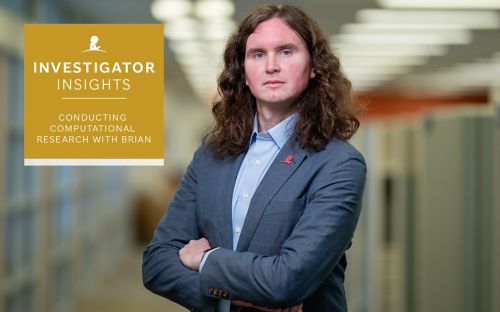St. Jude Family of Websites
Explore our cutting edge research, world-class patient care, career opportunities and more.
St. Jude Children's Research Hospital Home

- Fundraising
St. Jude Family of Websites
Explore our cutting edge research, world-class patient care, career opportunities and more.
St. Jude Children's Research Hospital Home

- Fundraising
Brian Abraham Lab
Leveraging computational pipelines to decipher transcriptional processes in development and disease
About the Abraham Lab
To produce the right complements of proteins that enable cell type-specific behaviors, cells interpret the instructions in DNA through gene transcription or expression. Proper gene expression depends on complex rules and physical interactions between a multitude of components. Improper transcription of genes or proper transcription of broken genes is central to many human diseases. Our lab is interested in understanding how transcriptional mechanisms are regulated and how they guide cell identity, disease etiology, and therapeutic development.

In the news
Visualization and analysis tools break down barriers for big data
St. Jude is at the forefront of creating tools to visualize and analyze genomic data.
Investigator Insights: Conducting Computational Research with Brian Abraham, PhD
St. Jude scientist Brian Abraham, PhD, conducts computational research leveraging relationships and expertise to make discoveries. Read his story.
Our research summary
The Abraham lab studies how gene transcription is controlled, including how the genome is organized in the nucleus and how specific genes are regulated by environmental cues. We also study how transcriptional processes are altered in disease to either understand the disease or to suggest treatments. We develop and deploy computational pipelines to synthesize and distill complicated transcriptional processes and how they go awry in diseased cells. Much of our work centers on the study of super-enhancers, which are arrangements of transcription-regulating DNA elements that allow genes especially important for a cell's identity to be tightly controlled by the cell's environment. These super-enhancers have proven useful for identifying regulators of cell identity, regulation of genes by signaling pathways, genes required for tumor cell survival, targetable protein nodes in cancers, and important mutations in tumor genomes. Super-enhancers and their associated genes can be aggregated to computationally model the core regulatory circuitry that maintains the identities of specific cell types.
Super-enhancers are also physical entities in cell nuclei that are important contributors to structuring the genome within the nucleus. Our goals are to identify loci in the nucleus where transcriptional enhancers interact to form super-enhancers using genome structure data, and to uncover genes regulated by these structures in healthy and diseased cells. We are developing algorithms that leverage high-throughput sequencing data to identify these collections, the genes that they control, and the processes that mediate their functions.
Selected Publications
Contact us
Brian Abraham, PhD
Assistant Member, Computational Biology
Department of Computational Biology
MS 1135, Room IA6050
St. Jude Children's Research Hospital
Follow Us

Memphis, TN, 38105-3678 USA GET DIRECTIONS



